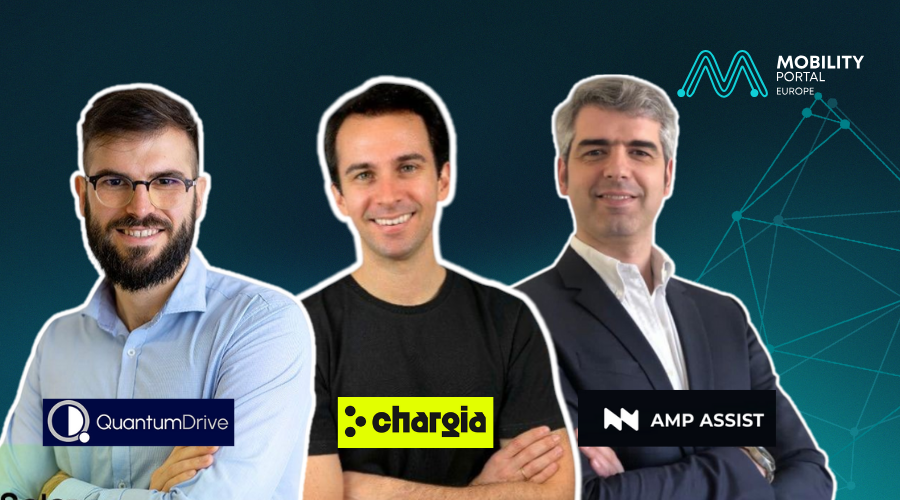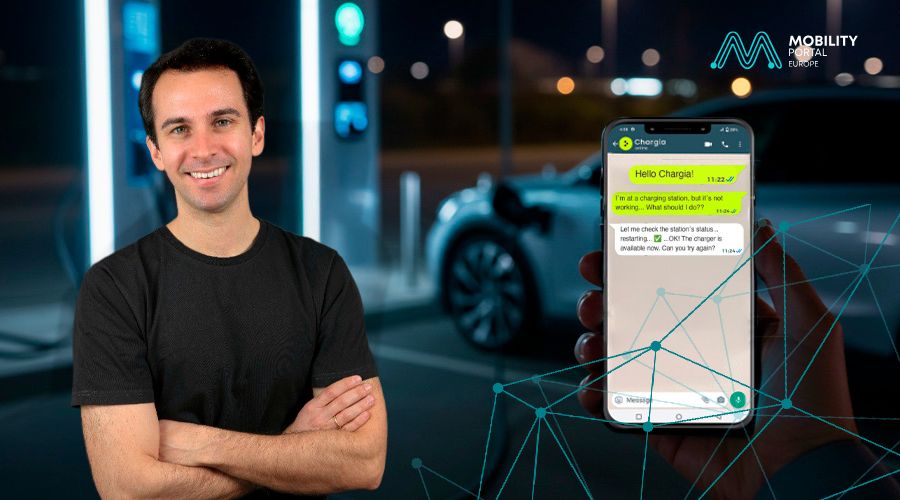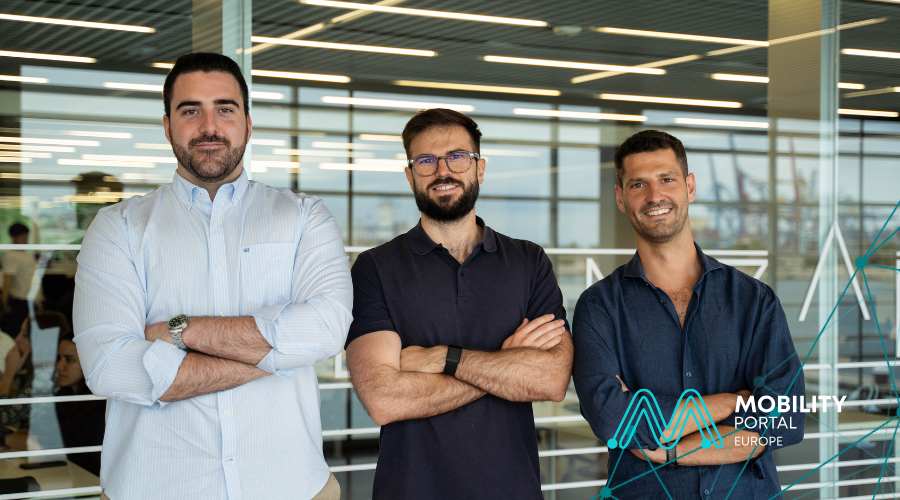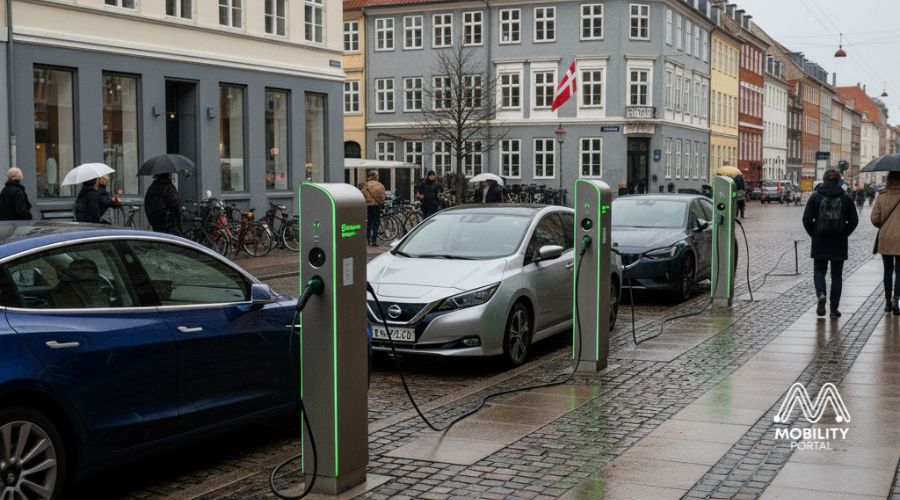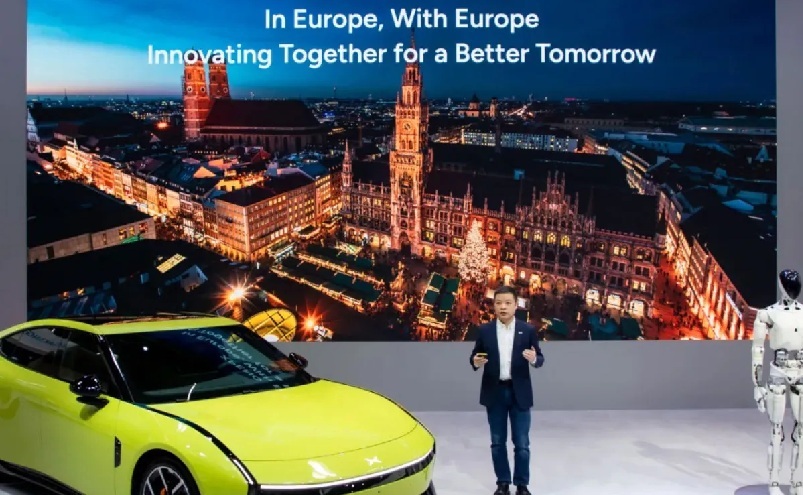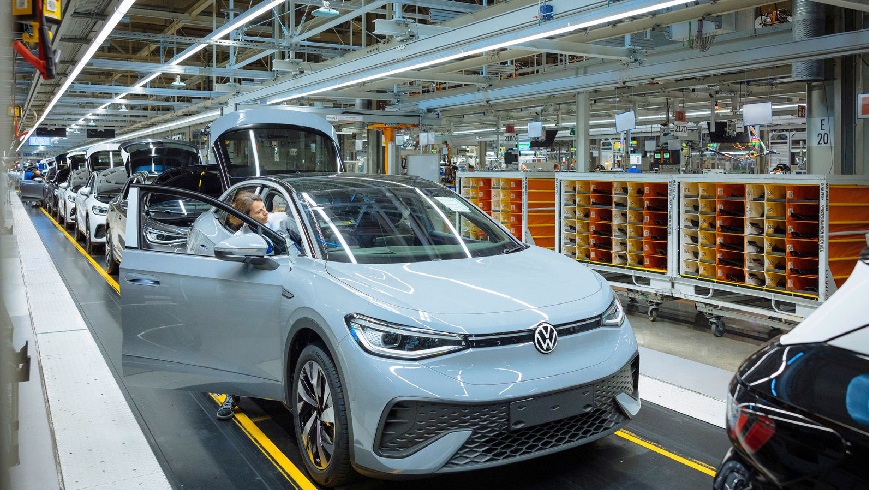In the world of eMobility, most of the attention tends to focus on what’s visible: charging points, power capacity, number of connectors installed, or strategic locations.
But while the spotlight shines on the chargers, a quieter—and deeper—transformation is taking place behind the scenes: artificial intelligence (AI) is beginning to completely redesign the charging experience.
Instead of adding more buttons, apps, or procedures, a new group of startups is aiming to eliminate all of that. Their proposal: use AI to simplify, automate, and humanise interaction with charging stations.
It’s no longer just about charging quickly. It’s about charging without thinking. And, if possible, without leaving WhatsApp.
These are three of the startups that Mobility Portal highlights as leaders on the new frontier of eMobility.
Hello Chargia: the “ChatGPT” of electric chargers
What if everything you need to charge your car could be sorted simply by messaging on WhatsApp?
That’s exactly what Chargia—founded in Spain by Eduardo Medina and Martín Fimia Casalilla—is setting out to do: turn the world’s most popular messaging app into the nerve centre of electric mobility.
The system allows users, all within a single conversation, to plan routes, report issues, locate charging stations and—very soon—pay directly from the chat. All in natural language, without intermediary apps.
“We want the charging experience to be as easy as chatting with a friend,” Medina explains. And it’s not just a figure of speech: the assistant converses, understands the user’s language, and responds in real time.
But the innovation goes beyond the interface. For charge point operators (CPOs), Chargia represents a concrete opportunity to cut support operating costs by up to 80%, scale operations without expanding their workforce, and improve margins in a business model that still struggles to be profitable.
With features such as remote charger restarts, ticket issuing, or socket unlocking, the system already operates in real time, 24/7, and can integrate with operators’ existing databases.
Quantum Drive: intelligence to prevent frustration before reaching the charging point
QuantumDrive was born from an uncomfortable question: why do we still have to guess whether a charger will be working when we arrive?
The startup has developed a platform using machine learning to anticipate the real-time availability and condition of chargers. It does so by combining historical usage data, user behaviour patterns, reported faults, and variables such as temperature, time of day, or large-scale events.
Rather than just showing a map, QuantumDrive says: “Don’t go there, it’ll probably be busy when you arrive.”
This predictive approach not only enhances the end user’s experience but also allows operators and fleets to make better logistical decisions, reduce downtime, and plan critical maintenance in advance.
Additionally, Quantum is working with conversational interfaces, integrating its technology with voice assistants and navigation apps—keeping drivers focused on the road, not their phones.
AMP Assist: smart automation for the behind-the-scenes of charging
Behind the scenes of the eMobility sector, AMP Assist is building one of the most robust platforms for automation and operational intelligence across charging networks.
Its platform focuses on real-time monitoring, automatic fault detection, and predictive issue management.
But what sets it apart is that it doesn’t just detect problems—it prevents or resolves them without human intervention.
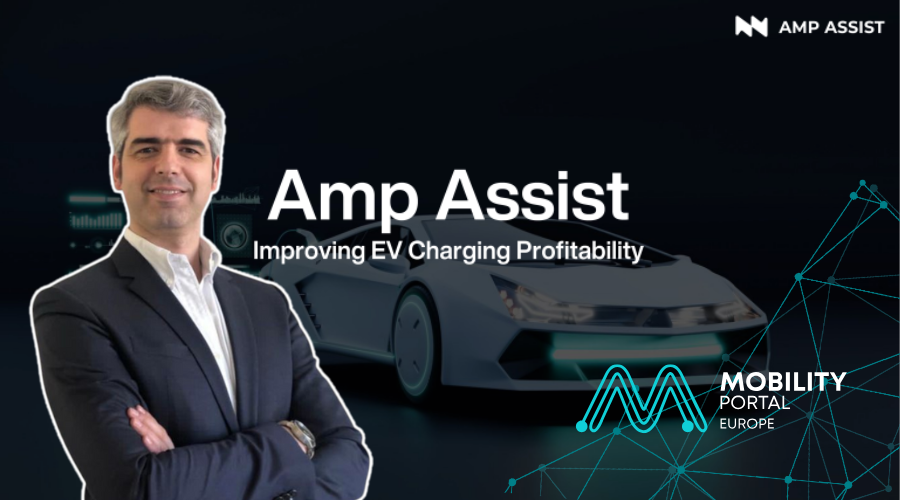
Thanks to an AI engine trained on thousands of events, AMP can, for example, predict when a charger will fail under certain conditions and remotely adjust parameters to avoid it. It can also dynamically reallocate power based on demand and detect unusual usage patterns that might suggest tampering or imminent failure.
For CPOs, this translates into fewer emergency calls, fewer technical visits, and greater network availability. And for users, something even more valuable: trust.
AMP is currently rolling out its technology with European operators and aims to integrate with front-end interfaces like those developed by Chargia and Quantum. The goal: intelligence that remains invisible—but decisive.
DISCOVER MOBILITY PORTAL DATA
Explore Mobility Portal Data, a new, exclusive market intelligence platform offering reliable data and key insights to support smart decision-making across the automotive sector—covering both combustion and electric vehicles, as well as charging infrastructure.
Research, trend analysis, and well-structured statistics, clearly presented alongside up-to-date information—all just one click away. With Mobility Portal Data, the best decisions are right around the corner.
READ MORE
-
Affordable and reliable charging: Denmark’s two “unfinished tasks”
Denmark has already passed the threshold for mass adoption of electric vehicles. However, the eMobility sector warns that public charging remains “too expensive” compared to refuelling with petrol or diesel.
-
XPENG arrives in 5 European countries: Where will its expansion plan begin?
This expansion follows XPENG’s new manufacturing deal with Magna in Austria, enabling local production, avoiding EU tariffs, and boosting its footprint in Europe.
-
Volkswagen to cut production at several German plants amid weak EV demand
Zwickau and Emden have seen low demand for electric vehicles, while Osnabrück is reporting weak sales of the convertibles produced at the plant.





